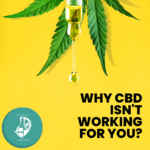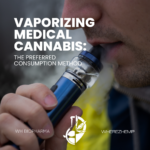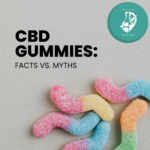As the use of CBD products continues to soar, concerns about safety and quality are also on the rise. Unfortunately, medical fraud, mislabeling, and contamination have become all too common in the CBD industry. The lack of federal regulation has led to inadequate oversight, leaving consumers exposed to potentially harmful products. In this blog post, we’ll discuss the risks associated with the mislabeling and contamination of CBD products, and why it remains a major concern for public health.
CBD is classified as a dietary supplement under federal law, which means that unlike prescription drugs, it doesn’t require FDA approval before being sold to the public. Although the Agriculture Improvement Act of 2018 legalized the cultivation of the hemp plant, the manufacturing process of CBD products remains largely unregulated. This has led to inconsistencies in labeling, dosage, and even the presence of harmful heavy metals.
Another issue with CBD products is the mislabeling label claims of cannabinoid content. Studies conducted by various organizations, such as Johns Hopkins University and the National Institutes of Health, among other substances have found that many CBD products contain inaccurate labeling and claims. Some mislabeled products even contain other drugs, making them potentially dangerous to consume.
Contamination is also a significant concern in the CBD industry. Heavy metals, pesticides, lead contamination, and other harmful substances can be present in CBD products, posing a risk to public health. The lack of proper regulation and oversight in the industry makes it difficult to ensure that all products are safe for consumption.
The mislabeling and contamination of CBD products remain major concerns for public health. Inadequate regulation and oversight have led to inaccurate labeling, harmful contaminants, and public safety risks. While CBD may offer potential benefits for certain health conditions, it’s crucial to purchase products from reputable CBD companies that adhere to strict quality control standards. Always check CBD labels carefully, and consult with healthcare professionals before using any CBD product, especially if you’re currently taking other medications or undergoing drug testing.
CBD Mislabeling and Contamination
CBD, or cannabidiol, has become a popular natural remedy for a variety of health conditions. However, with the rise of CBD products on the market, concerns about mislabeling and contamination have become significant public health and cannabis concerns. In this blog post, we’ll explore the issue of CBD mislabeling and contamination in cannabis itself, and why it remains a major concern for public health and cannabis everywhere.
Under federal law, CBD is classified as a dietary supplement, which means it doesn’t require FDA approval before being sold to the public. This lack of regulatory oversight has led to inconsistencies in labeling, dosage, and even the presence of harmful heavy metals in CBD products. According to a study conducted by the Journal of the American Medical Association (JAMA), 69% of CBD products tested contained inaccurate labeling of cannabinoid content, while 21% contained THC levels that could potentially cause adverse reactions.
The manufacturing process of CBD products remains largely unregulated, which can lead to contamination with harmful substances such as pesticides, lead, and other heavy metals. The lack of proper regulation and oversight in the industry makes it difficult to ensure that all CBD products are safe for consumption.
Mislabeling medical use and contamination of CBD products can pose significant health risks, especially for individuals with rare seizure disorders who rely on CBD for treatment. Inaccurate labeling proper dosage can result in improper dosages, potentially leading to adverse effects or ineffective treatments. Contamination of cannabis products with harmful substances can also pose health risks, including heavy metal toxicity, liver damage, and other adverse reactions.
In response to the issue of mislabeling and contamination of cannabis plants, some states have implemented regulations for testing and labeling CBD products. Additionally, the industry should follow Good Manufacturing Practices (GMPs) to ensure quality control and safety of cannabis plant.
CBD mislabeling and contamination remain significant public health concerns. The lack of proper regulation and oversight in the industry has led to inconsistencies in labeling, dosage, and the presence of harmful heavy metals. Consumers should exercise caution when purchasing CBD products, and only buy from reputable CBD companies that adhere to strict quality control standards. Always check CBD labels carefully, and consult with healthcare professionals before using any CBD product, especially if you’re currently taking other medications or undergoing drug testing.
Why cannabinoid product mislabeling matters
Coid product mislabeling is a significant concern in the CBD industry, as it can lead to serious public health risks. Mislabeling can result in inaccurate dosages, inadequate treatment, and exposure to harmful substances, such as heavy metals, pesticides, and other contaminants. In this blog post, we’ll explore why cannabinoid product mislabeling matters and why it remains a major concern for public health.
Under federal law, CBD is classified as a dietary supplement, which means that it doesn’t require FDA approval before being sold to the public. This lack of regulatory oversight has led to inadequate regulation and inconsistent labeling standards for CBD products. According to a study conducted by Johns Hopkins University, many CBD products contain inaccurate labeling of cannabinoid content, with some products containing much more THC than what’s allowed by law.
Mislabeling can also lead to improper dosages, resulting in ineffective treatments or adverse reactions. This is particularly concerning for individuals with rare seizure disorders who rely on CBD for treatment. Inaccurate labeling can also result in individuals consuming more or less CBD than intended, potentially leading to adverse side effects.
In addition to mislabeling, contamination of CBD products with harmful substances is another significant public health concern. The manufacturing process of CBD products remains largely unregulated, which can lead to contamination with heavy metals, pesticides, and other harmful substances. Exposure to these substances can cause severe health risks, including heavy metal toxicity, liver damage, and other adverse reactions.
Inadequate regulation and oversight in the industry have made it difficult to ensure consistent labeling and proper testing of CBD products. However, some states have implemented regulations for testing and labeling CBD products. The industry should also follow Good Manufacturing Practices (GMPs) to ensure quality control and safety.
Cannabinoid product mislabeling matters because it can lead to serious public health risks. Mislabeling can result in inaccurate dosages, inadequate treatment, and exposure to harmful substances, such as heavy metals, pesticides, and other contaminants. Consumers should exercise caution when purchasing CBD products and only buy from reputable CBD companies that adhere to strict quality control standards. It’s also crucial to consult with healthcare professionals before using any CBD product, especially if you’re currently taking other medications or undergoing drug testing.
How accurate are CBD labels?
CBD products have become increasingly popular for their natural and holistic benefits. However, concerns regarding product mislabeling and inaccurate CBD labeling are causing significant worry among consumers. A 2017 study by the University of Pennsylvania found that nearly 70% of CBD products were mislabeled in terms of their CBD content. Inaccurate labeling can result in consumers receiving less CBD than what is listed on the product label, which may lead to the products being ineffective.

The Agriculture Improvement Act of 2018 federally legalized hemp cultivation, thus making CBD derived from hemp considered legal. As such, CBD is classified as a dietary supplement, and there are no FDA regulations in place for testing or labeling standards. This absence of federal regulations has led to inadequate oversight, resulting in many mislabeled products on the market.
In addition to lower-than-advertised CBD levels, some products are mislabeled with other cannabinoids or contain THC levels higher than those allowed by law. This creates potential harm and negative interactions, especially for individuals who rely on CBD to treat severe forms of health conditions, such as Lennox-Gastaut syndrome.
Moreover, some CBD products may contain unapproved substances or other drugs, leading to dangerous side effects and adverse reactions. The lack of proper regulation and oversight in the industry poses significant public health concerns, including potential harm to at-risk populations.
To ensure accurate labeling, consumers should purchase CBD products from reputable companies that test their products through third-party laboratories. Products should be accurately labeled with detailed information about their CBD content, other cannabinoids present, and THC content. On a positive note, research shows that most CBD products on the market are accurately labeled, but it’s crucial to exercise caution when purchasing such products.
In summary, the accuracy of CBD labels is a major concern, with mislabeled products posing significant public health risks. It’s crucial to purchase CBD products from reputable companies that accurately label their products and test them through third-party laboratories. It’s also important to consult with healthcare professionals before using any CBD products to ensure safe and effective use.
How many CBD products are mislabeled?

A 2017 study conducted by the University of Pennsylvania found that nearly 70% of CBD products are mislabeled. However, more recent research shows that most CBD products on the market today are accurately labeled. Despite this, CBD product mislabeling remains a significant concern, with some products containing less CBD than advertised or other cannabinoids not listed on the product label either. Additionally, some products may contain THC levels higher than those allowed by law and harmful heavy metals such as lead contamination. These inaccuracies in CBD labeling pose a potential risk to public health, especially for consumers who rely on CBD to treat severe health conditions. It’s crucial to purchase CBD products from reputable companies that test their products through third-party laboratories and accurately label their products with detailed information about their CBD content, other cannabinoids present, and THC content.





